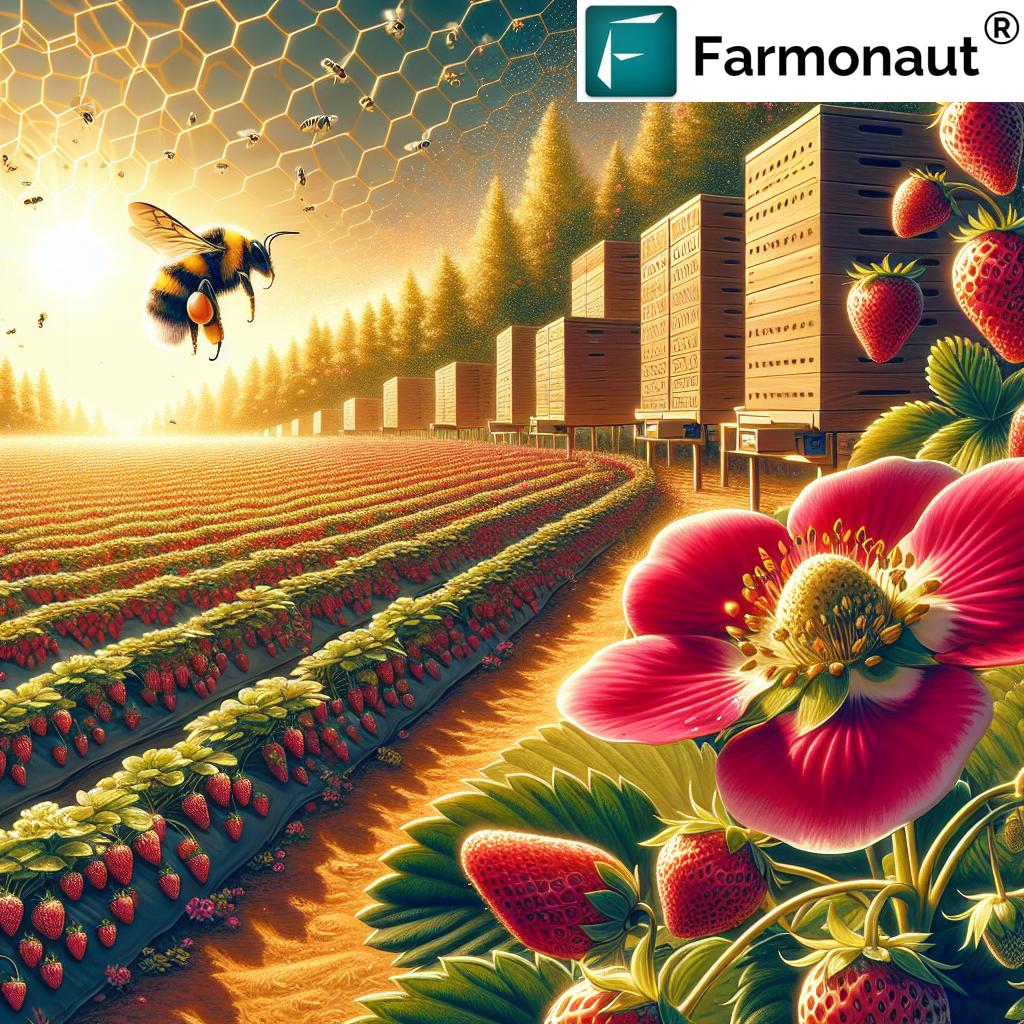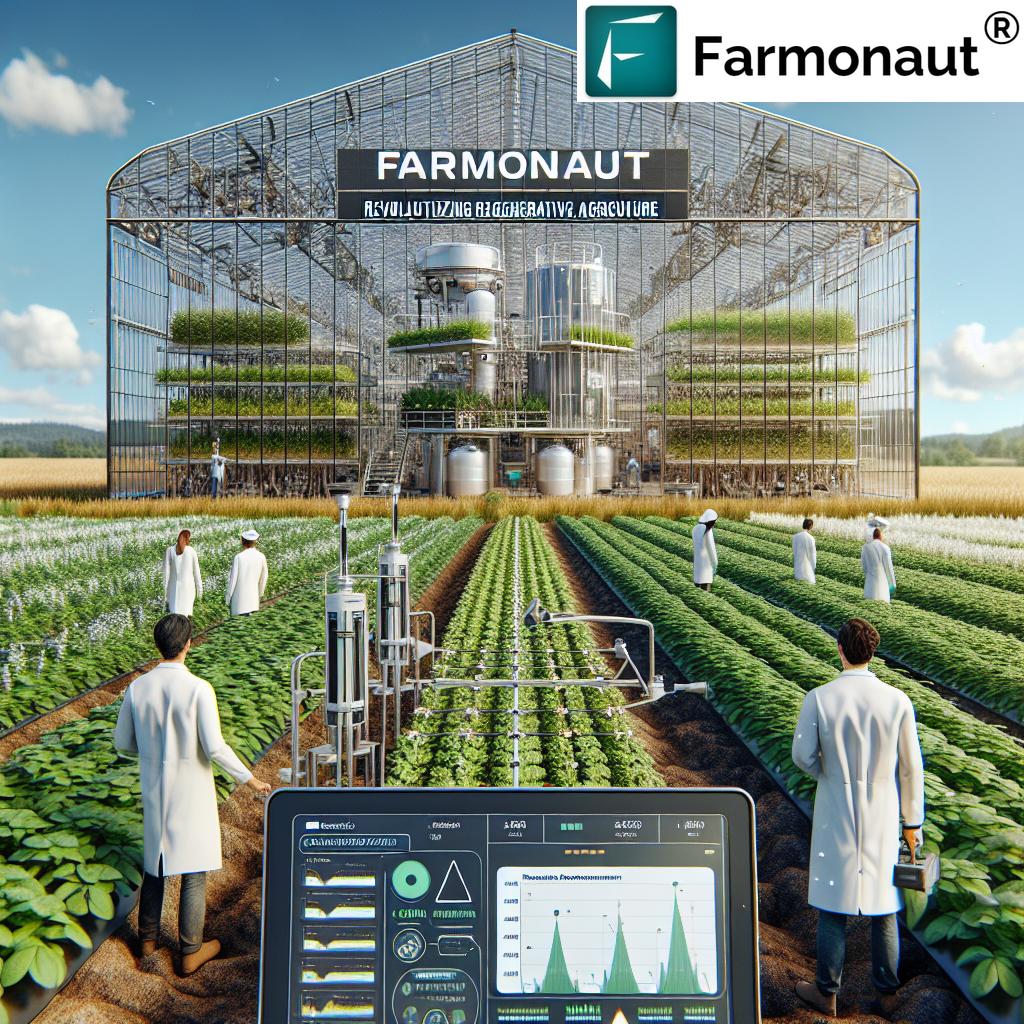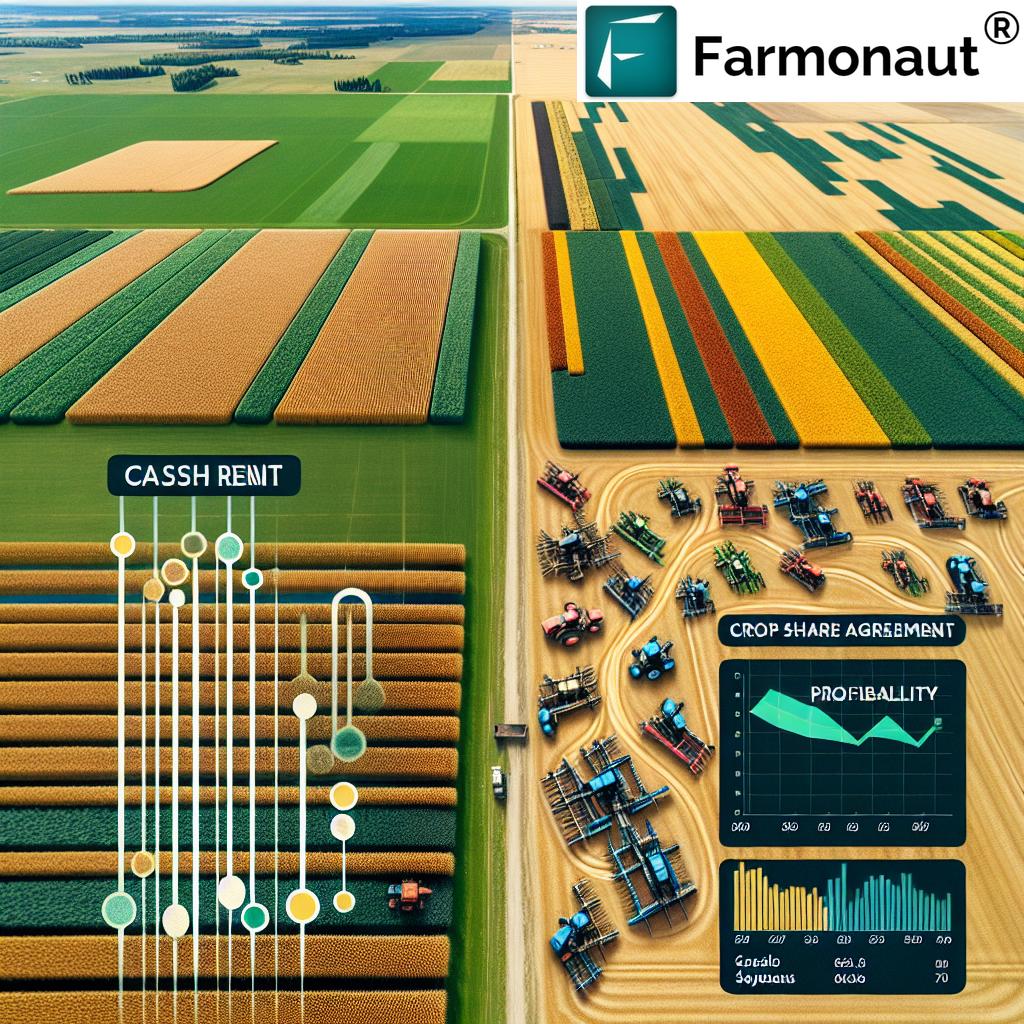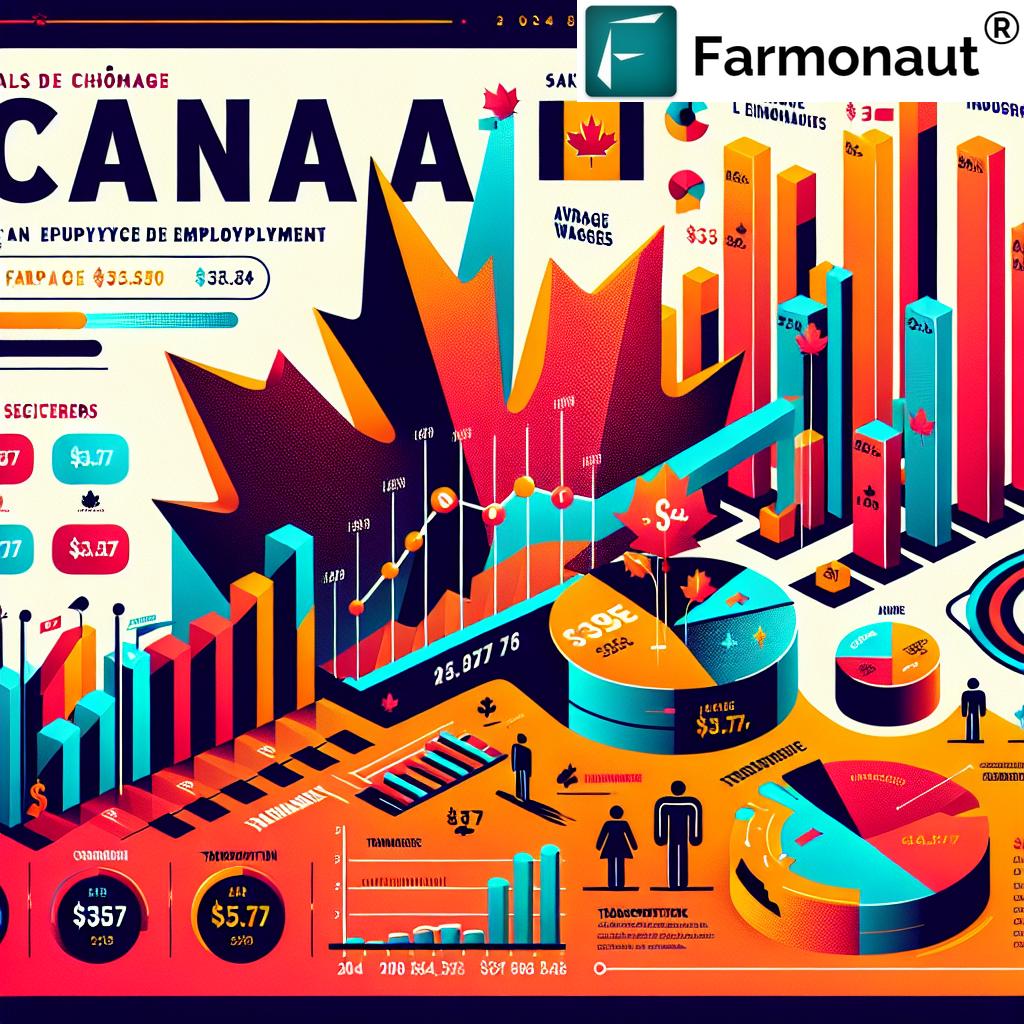Alberta’s Young Farmers Pioneer Sustainable Agriculture: Innovative Practices Reshaping Local Food Systems
“Young Alberta farmers increased local food system participation by 30% through innovative sustainable practices.”
In the heart of Canada’s prairies, a revolution is taking root. We’re witnessing a transformation in Alberta’s agricultural landscape, where young farmers are leading the charge towards a more sustainable and innovative future. Today, we’ll explore how these pioneering spirits are reshaping local food systems and setting new standards for sustainable agriculture practices across the nation.
The Rise of Sustainable Farming in Alberta
Alberta has long been known for its vast agricultural lands and robust farming industry. However, in recent years, a new generation of farmers has emerged, bringing with them a fresh perspective on how to cultivate the land while preserving it for future generations. These young agriculturists are not just farmers; they’re innovators, environmentalists, and community leaders.
At the forefront of this movement are the recipients of the Alberta young farmers award, a recognition that celebrates outstanding contributions to sustainable agriculture and innovative farming techniques. These award-winning farms are setting the benchmark for what modern, eco-conscious farming can achieve.

Integrating Crop Production and Ranching: A Holistic Approach
One of the standout features of these innovative farms is their holistic approach to agriculture. By integrating crop production and ranching, these young farmers are creating diverse, resilient agricultural systems that maximize land use efficiency and promote biodiversity.
“Award-winning farm integrates 5 different agricultural techniques: crop production, ranching, irrigation, winter feed, and silage production.”
This integrated approach includes:
- Irrigated cash crops: Utilizing advanced irrigation techniques to grow high-value crops efficiently
- Winter feed production: Ensuring year-round sustainability for livestock operations
- Silage production: Maximizing nutrient preservation for animal feed
- Rotational grazing: Promoting soil health and grass-fed livestock practices
- Cover cropping: Enhancing soil fertility and reducing erosion
This multifaceted approach not only diversifies income streams but also creates a more resilient and sustainable farm ecosystem.
Embracing Regenerative Agriculture
At the core of these young farmers’ philosophy is a commitment to regenerative agriculture. This approach goes beyond sustainability; it aims to actively improve the health of the soil, increase biodiversity, and enhance ecosystem services. Here’s how they’re implementing regenerative practices:
- Minimal tillage: Reducing soil disturbance to preserve soil structure and microbial life
- Diverse crop rotations: Enhancing soil fertility and breaking pest cycles naturally
- Composting: Creating nutrient-rich soil amendments from farm waste
- Agroforestry: Integrating trees and shrubs into crop and animal farming systems
These practices not only improve soil health but also increase the farm’s capacity to sequester carbon, playing a crucial role in mitigating climate change.
Innovative Irrigation Techniques
Water conservation is a critical aspect of sustainable farming, especially in regions prone to drought. Alberta’s young farmers are pioneering innovative irrigation techniques that maximize water efficiency while ensuring optimal crop yields. Some of these techniques include:
- Drip irrigation: Delivering water directly to plant roots, minimizing evaporation
- Precision irrigation: Using sensors and data analytics to apply water only where and when it’s needed
- Rainwater harvesting: Collecting and storing rainwater for use during dry periods
These water-saving practices not only conserve a precious resource but also reduce the farm’s operational costs and environmental footprint.
Leveraging Modern Agricultural Technology
Technology plays a crucial role in these innovative farming operations. By embracing modern agricultural technology, young farmers are able to make more informed decisions, optimize resource use, and increase productivity. Some of the key technologies being utilized include:
- Satellite-based crop monitoring: Using remote sensing to assess crop health and make timely interventions
- Precision agriculture tools: Employing GPS-guided machinery for precise planting and harvesting
- IoT sensors: Monitoring soil moisture, temperature, and other key parameters in real-time
- Data analytics: Analyzing farm data to make informed decisions on crop management and resource allocation
These technological innovations are helping farmers to reduce input costs, minimize environmental impact, and increase yields.
At Farmonaut, we’re proud to support these innovative farmers with our advanced satellite-based farm management solutions. Our platform provides real-time crop health monitoring, AI-based advisory systems, and resource management tools that align perfectly with the goals of sustainable and precision agriculture.
Direct Farm Marketing Strategies
One of the most impactful changes these young farmers are implementing is in their approach to marketing. By adopting direct farm marketing strategies, they’re not only securing better prices for their products but also fostering stronger connections with their local communities. Some of these strategies include:
- Community Supported Agriculture (CSA) programs: Offering consumers the opportunity to subscribe to regular deliveries of farm-fresh produce
- Farmers’ markets: Selling directly to consumers at local markets, promoting face-to-face interactions
- Farm-to-table partnerships: Collaborating with local restaurants and institutions to supply fresh, local ingredients
- Online marketplaces: Utilizing e-commerce platforms to reach a wider customer base
These direct marketing approaches not only provide farmers with a larger share of the food dollar but also contribute to the development of robust local food systems.

Sustainable Livestock and Poultry Practices
The innovative approaches of Alberta’s young farmers extend to their livestock and poultry operations as well. By implementing sustainable practices in animal husbandry, they’re setting new standards for ethical and environmentally friendly meat production. Some of these practices include:
- Pasture-based systems: Allowing animals to graze naturally, improving their health and the quality of meat
- Rotational grazing: Moving animals frequently to prevent overgrazing and promote soil health
- Alternative feed sources: Utilizing crop residues and by-products to reduce reliance on grain-based feeds
- Improved housing designs: Creating animal-friendly structures that reduce stress and improve welfare
These practices not only result in healthier animals and higher-quality products but also contribute to the overall sustainability of the farm ecosystem.
Renewable Energy Integration
Recognizing the importance of reducing their carbon footprint, many of Alberta’s young farmers are integrating renewable energy sources into their operations. This shift towards clean energy not only reduces operational costs in the long run but also aligns with their commitment to environmental stewardship. Some of the renewable energy initiatives include:
- Solar panels: Installing photovoltaic systems to power farm equipment and buildings
- Wind turbines: Harnessing wind energy in suitable locations
- Biogas digesters: Converting animal waste and crop residues into energy
- Geothermal systems: Utilizing ground heat for climate control in farm buildings
By adopting these renewable energy solutions, farmers are not only reducing their reliance on fossil fuels but also creating more resilient and self-sufficient farm operations.
Enhancing Food Safety and Traceability
In an era where consumers are increasingly concerned about the origin and safety of their food, Alberta’s young farmers are implementing robust food safety and traceability systems. These systems not only ensure the quality of their products but also build trust with consumers. Key aspects of their approach include:
- Comprehensive record-keeping: Documenting all aspects of production from seed to sale
- Blockchain technology: Implementing transparent and tamper-proof traceability systems
- Regular quality testing: Conducting frequent tests to ensure product safety and quality
- Clear labeling: Providing detailed information about production methods and origins on product packaging
These practices not only meet regulatory requirements but go above and beyond to provide consumers with the information they need to make informed choices about their food.
Sustainable Farming Practices Comparison
| Farming Aspect | Traditional Method | Innovative Approach |
|---|---|---|
| Irrigation Techniques | Flood irrigation (70% water usage) | Precision drip irrigation (30% water usage) |
| Crop Rotation | 2-3 year rotation | 5+ year diverse rotation |
| Soil Management | Heavy tillage, synthetic fertilizers | No-till, cover crops, organic amendments |
| Pest Control | Broad-spectrum pesticides | Integrated Pest Management (IPM) |
| Marketing Strategies | Wholesale to distributors | Direct-to-consumer, CSA programs |
| Crop Yields | Baseline | 10-20% increase |
| Chemical Inputs | High reliance | 50-70% reduction |
The Impact on Local Food Systems
The innovative practices implemented by Alberta’s young farmers are having a profound impact on local food systems. By focusing on sustainable production methods and direct marketing, they’re creating a more resilient and community-oriented food network. The benefits of this approach include:
- Increased food security: Diverse local production reduces reliance on distant food sources
- Improved food quality: Shorter supply chains mean fresher, more nutritious food
- Economic boost: More money stays within the local economy
- Enhanced community connections: Direct farmer-consumer relationships build trust and understanding
- Reduced environmental impact: Shorter transportation distances and sustainable practices lower carbon footprints
These local food systems are not just benefiting consumers and farmers; they’re contributing to the overall health and resilience of Alberta’s communities.
Explore Farmonaut’s API for advanced agricultural insights
Challenges and Future Prospects
While the achievements of Alberta’s young farmers are impressive, they still face significant challenges. Some of the key hurdles include:
- Climate change: Adapting to increasingly unpredictable weather patterns
- Economic pressures: Balancing sustainability with profitability
- Knowledge gap: Keeping up with rapidly evolving agricultural technologies
- Market access: Expanding reach while maintaining direct consumer connections
Despite these challenges, the future looks bright for sustainable agriculture in Alberta. The innovative spirit and determination of these young farmers, combined with growing consumer demand for sustainable and locally-produced food, suggest that this movement will continue to gain momentum.
The Role of Technology in Sustainable Farming
As we look to the future of sustainable agriculture in Alberta, technology will undoubtedly play a crucial role. Advanced tools and platforms, such as those offered by Farmonaut, are empowering farmers to make data-driven decisions that optimize resource use and improve sustainability. Our satellite-based crop health monitoring and AI-powered advisory systems are particularly valuable for farmers implementing precision agriculture techniques.
Check out our API Developer Docs for integration options
These technological solutions enable farmers to:
- Monitor crop health in real-time
- Optimize irrigation and fertilizer application
- Predict and mitigate pest and disease outbreaks
- Track and reduce their carbon footprint
By leveraging these advanced tools, Alberta’s young farmers are not only improving their own operations but also setting new standards for sustainable agriculture across Canada and beyond.
Education and Knowledge Sharing
One of the most inspiring aspects of Alberta’s young farmer movement is their commitment to education and knowledge sharing. Many of these innovative farmers are actively involved in:
- Mentorship programs: Guiding the next generation of sustainable farmers
- Community workshops: Sharing sustainable farming techniques with local residents
- School partnerships: Educating children about sustainable food production
- Online resources: Creating blogs, videos, and social media content to share their experiences
This focus on education ensures that the sustainable agriculture movement continues to grow and evolve, creating a lasting impact on Alberta’s agricultural landscape.
Conclusion: A Sustainable Future for Alberta’s Agriculture
The story of Alberta’s young farmers is one of innovation, determination, and hope. Through their commitment to sustainable agriculture practices, innovative farming techniques, and local food systems, they are not just changing the way we farm – they’re reshaping our relationship with food and the land.
As we’ve explored in this blog post, these pioneering farmers are:
- Implementing regenerative agriculture practices
- Integrating cutting-edge technology with traditional farming wisdom
- Creating resilient, diversified farming operations
- Building strong, community-oriented local food systems
- Leading the way in sustainable livestock and poultry production
- Embracing renewable energy and reducing their carbon footprint
Their efforts are not just benefiting their own farms; they’re setting a new standard for sustainable agriculture across Canada and inspiring a global movement towards more ecological farming methods.
As we look to the future, it’s clear that the innovative spirit of Alberta’s young farmers, combined with advanced agricultural technologies like those provided by Farmonaut, will continue to drive positive change in the industry. Together, we’re cultivating not just crops, but a sustainable, resilient, and community-oriented future for agriculture.
FAQ Section
Q: What are the main sustainable agriculture practices implemented by Alberta’s young farmers?
A: Key practices include regenerative agriculture techniques, precision irrigation, integrated crop and livestock systems, renewable energy adoption, and direct farm marketing strategies.
Q: How are these innovative farming techniques impacting local food systems?
A: They’re increasing food security, improving food quality, boosting local economies, enhancing community connections, and reducing the environmental impact of food production.
Q: What role does technology play in these sustainable farming operations?
A: Technology is crucial, with farmers using satellite-based crop monitoring, precision agriculture tools, IoT sensors, and data analytics to optimize resource use and increase productivity.
Q: How are these young farmers addressing climate change in their operations?
A: They’re implementing practices that sequester carbon, reduce water usage, minimize chemical inputs, and integrate renewable energy sources to lower their overall carbon footprint.
Q: What challenges do these innovative farmers face?
A: Key challenges include adapting to climate change, balancing sustainability with profitability, keeping up with rapidly evolving agricultural technologies, and expanding market access while maintaining direct consumer connections.




















